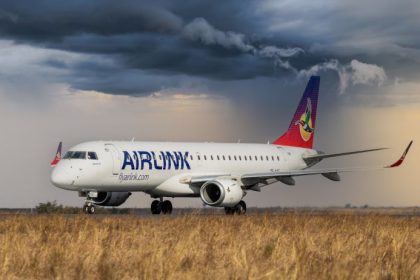US moves to reassert influence in Africa through $150m Zipline drone partnership

News Analysis
Washington turns to health logistics and AI-driven delivery networks as tools of 21st-century geopolitics
The U.S. is deepening its strategic footprint in Africa with a $150m partnership that expands Zipline’s drone delivery network across five countries—using health logistics, AI and autonomous technology as the next frontier of geopolitical influence.
Michael Wakabi
The United States has unveiled a $150 million partnership with Zipline International, the California-based autonomous drone logistics company, in a move that positions health delivery technology at the centre of its evolving geopolitical strategy in Africa. The initiative, announced on 25 November, marks a significant shift in how Washington projects influence on the continent—less through large-scale infrastructure financing, and more through advanced technologies aligned to the “America First” global health and innovation agenda.
The funding will expand Zipline’s delivery operations across Côte d’Ivoire, Ghana, Kenya, Nigeria and Rwanda, with the capacity to serve up to 15,000 health facilities. Zipline’s autonomous drones, long seen as a breakthrough solution to rural logistics gaps, will now become instruments of U.S. soft power, offering rapid delivery of blood, vaccines, and emergency medical supplies in regions that struggle with unreliable transport networks.
Beyond the public health framing, the initiative carries broader strategic undertones. It places an American-made robotics network at the heart of African health systems at a time when geopolitical competition over technology, standards and market access has intensified. For Washington, the partnership is a dual win, strengthening global health security while creating new commercial space for U.S. firms amid rising competition from state-backed Chinese digital and infrastructure projects.
Officials framed the agreement as evidence of a new diplomatic model—one that replaces traditional aid flows with public–private ventures intended to generate long-term market presence and foster dependency on American expertise. Milestone-based payment structures and mandatory co-financing from African governments are designed to ensure sustainability, but they also embed U.S. technology deeply into national health architectures.
The State Department described the initiative as a pillar of the America First Global Health Strategy, which blends pandemic preparedness with efforts to counter “debt-financed infrastructure exports”—a thinly veiled reference to China’s Belt and Road Initiative. By accelerating the adoption of AI-enabled logistics, the U.S. aims to demonstrate that its technological solutions offer greater value, transparency and long-term reliability compared to state-led alternatives.
For African governments, the deal offers a high-tech response to persistent gaps in last-mile health delivery. Rwanda and Ghana already operate established Zipline networks, while Nigeria and Kenya continue to scale up deployments. Yet the partnership also reflects a growing trend: the securitisation of health supply chains as geopolitical assets. Whoever powers the drones, builds the data platforms or controls the logistics software will inevitably shape how countries manage emergencies, procure supplies and plan their public health responses.
As global competition increasingly shifts to domains such as AI, autonomous systems and health resilience, Washington is signalling that diplomacy in the 2020s will be less about grand summits and more about embedded technological ecosystems. With this deal, the U.S. is placing a strategic bet that the future of influence in Africa will be won not only through financing, but through who delivers the blood, vaccines and medicine—fastest, safest and at scale.


 Crypto uptake outpaces cyber safeguards across Africa, experts warn
Crypto uptake outpaces cyber safeguards across Africa, experts warn
 Airlink resets Nairobi schedule to improve business connectivity via Johannesburg
Airlink resets Nairobi schedule to improve business connectivity via Johannesburg
 Air Senegal’s financial troubles escalate as french bank moves to seize two A330neos
Air Senegal’s financial troubles escalate as french bank moves to seize two A330neos
 EASA, IATA partner to streamline flight emissions data for passengers
EASA, IATA partner to streamline flight emissions data for passengers
 Kayoola e-coach takes off on 13,000km trans-Africa electric expedition showcasing homegrown innovation
Kayoola e-coach takes off on 13,000km trans-Africa electric expedition showcasing homegrown innovation
 IATA warns regulators as 5G and 6G expansion threatens aircraft navigation systems
IATA warns regulators as 5G and 6G expansion threatens aircraft navigation systems
